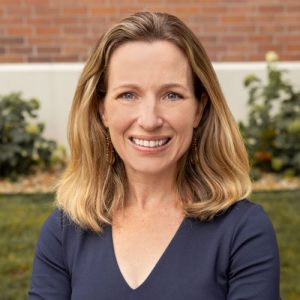
Introducing Springtide’s new Director, Dr. Tricia Bruce
Springtide Research Institute is thrilled to announce Dr. Tricia Bruce as its new director. Dr. Bruce has devoted her career as a sociologist to studying and communicating the dynamics of social life, particularly the organizational, attitudinal, and generational aspects of contemporary religion. Read more about Dr. Bruce here.
Members of our Springtide Ambassadors Program were excited to give Dr. Bruce an official Springtide welcome by interviewing her live on YouTube. Thanks to Christian, Viva, and Gabrielle for hosting this great conversation with our new director! Read highlights of Dr. Bruce’s responses or watch the entire recording below.
In social science, but also in society in general, we look to things that we know in stable quantities, like categories or labels or terms or understandings. And those things can be treated as real and finished in ways that aren’t fully genuine to what they are. But when we study young people, suddenly we start to question assumptions and reinterpret things that we thought we knew. Or we look for new meanings or new understandings. Asking those questions—and the kinds of things we hear and learn— tells us not only something about who we are and what we are today but also acts as a harbinger for who we are and what we are in the future. So, I can think of nothing more exciting than to have a research focus on young people. That is at the core of how society thinks of itself and where it’s headed in the future.
I’m driven by the excitement that comes from a research institute that is squarely dedicated to this work of research but also to research in the context of communication and application. Thinking about young people through this perspective of, “Are we listening? What are we learning? What are we hearing?”—even if sometimes it means hearing things that are unfamiliar. . . . Genuine listening can allow us to better understand who we are as a society, who we are together, and to think through ways to be better as people, ultimately, in a society that we all share and live in together.
In the survey that was used for [our report coming out in November], we identified that about a quarter of young people have experienced a sacred moment online. [We also saw] that nearly a third of young people say they have never participated in a religious or spiritual community. So, you have two counter-indicative findings here. One, the realities of religion in terms of traditional communities or congregational-type spaces maybe don’t play as large of a role in young people’s lives as they once did (although they still do, certainly, for many). And then you also have the emergence of new and different kinds of spaces, including online spaces, where young people are thinking through religion. If you think about these findings in contrast to, say, 10, 50, 100 years ago, what a different reality we live in today. [What that also says to me] is that we need different tools as social scientists to study that reality. And we also need to question our assumptions about young people’s experiences, young people’s meaning-making, and how and what religion means to them. I think of those findings as exciting findings for now but also as a rubric for the future as we continue to listen and listen well to these new kinds of experiences young people have in the world with religion.

Dr. Tricia Bruce
Director



